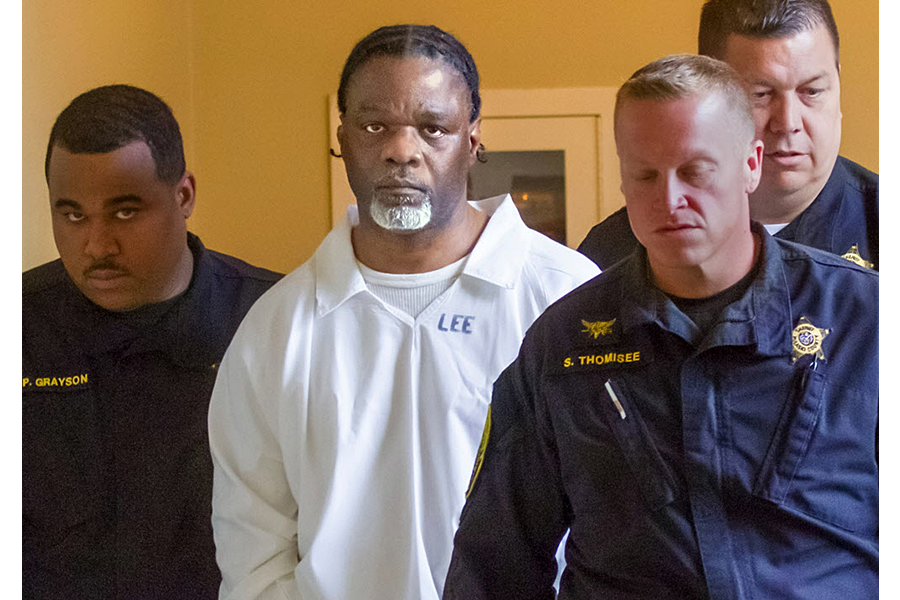After legal roadblocks, Arkansas performs its first execution since 2005
| Varner, Ark.
Arkansas carried out its first execution in nearly a dozen years despite a flurry of legal challenges that had spared three convicted killers, but courts still could scuttle the remainder of the nation's most ambitious death penalty schedule since capital punishment was restored in 1976.
Ledell Lee was pronounced dead at 11:56 p.m. Thursday, four minutes before his death warrant was due to expire at midnight, capping a chaotic week of legal wrangling. Arkansas originally wanted to put eight inmates to death before the state's supply of midazolam, one of three drugs used in its lethal injection process, expires at the end of April.
Three of those executions were canceled this week because of court decisions. Another inmate scheduled for execution next week has received a stay. But Arkansas wants to put two other inmates to death Monday, and one next Thursday.
Mr. Lee was put on death row for the 1993 death of his neighbor Debra Reese, whom Lee struck repeatedly with a tire tool her husband had given her for protection. Lee was arrested less than an hour after the killing after spending some of the $300 he had stolen from Ms. Reese.
After a hiatus of nearly 12 years, the execution was carried out without any apparent glitches. There had been concern because midazolam was used in some flawed executions in other states. Lee showed no signs of consciousness two minutes after the lethal injection and showed no apparent signs of suffering during the execution.
The state originally set four double executions over an 11-day period in April. That would have been the most by a state in such a compressed period since the US Supreme Court reinstated the death penalty in 1976.
Lee's execution went ahead after the US Supreme Court rejected last-minute appeals from his lawyers. But at least one high court justice expressed serious reservations about what critics have called Arkansas' rush to the death chamber.
"Apparently the reason the state decided to proceed with these eight executions is that the 'use by' date of the state's execution drug is about to expire.... In my view, that factor, when considered as a determining factor separating those who live from those who die, is close to random," Justice Stephen Breyer wrote.
Arkansas dropped plans to execute a second inmate, Stacey Johnson, on Thursday after the state Supreme Court said it wouldn't reconsider his stay, which was issued so Mr. Johnson could seek more DNA tests in hopes of proving his innocence.
State justices also on Thursday reversed an order by Pulaski County Circuit Judge Alice Gray that halted the use of vecuronium bromide, one of three drugs used in the state's lethal injection process, in any execution. McKesson Corp. says the state obtained the drug under false pretenses and that it wants nothing to do with executions.
Justices also denied an attempt by makers of midazolam and potassium chloride – the two other drugs in Arkansas' execution plan – to intervene in McKesson's fight over the vecuronium bromide. The pharmaceutical companies say there is a public health risk if their drugs are diverted for use in executions, and that the state's possession of the drugs violates rules within their distribution networks.
The legal delays in the executions frustrated Gov. Asa Hutchinson and other state officials. Lawyers for the state have complained that the inmates are filing court papers just to run out the clock. Prisons director Wendy Kelley has said the state has no way to obtain more midazolam or vecuronium bromide.
But after the resumption of the death penalty on Thursday, Mr. Hutchinson's spokesman J.R. Davis said: "Justice was carried out."






